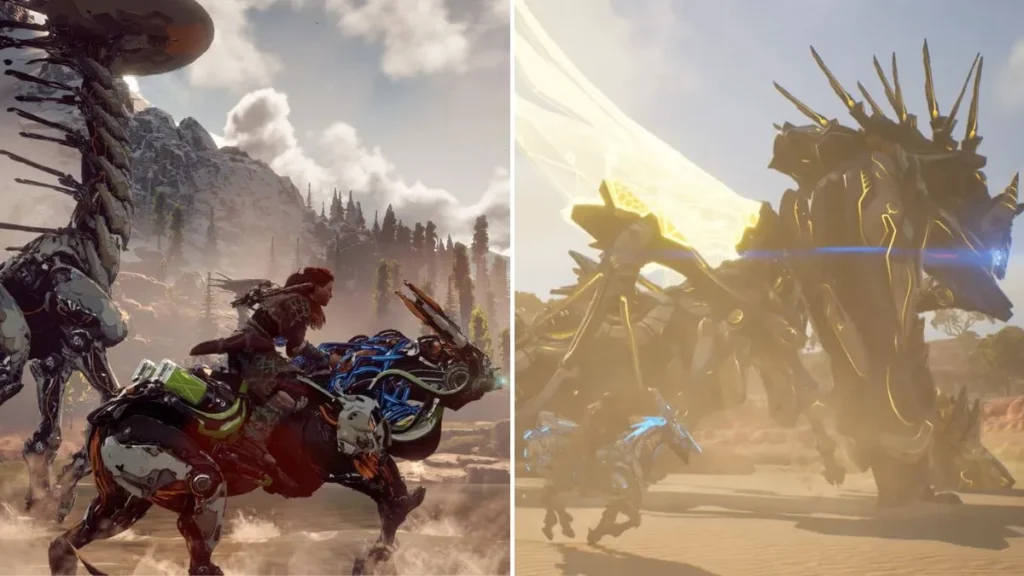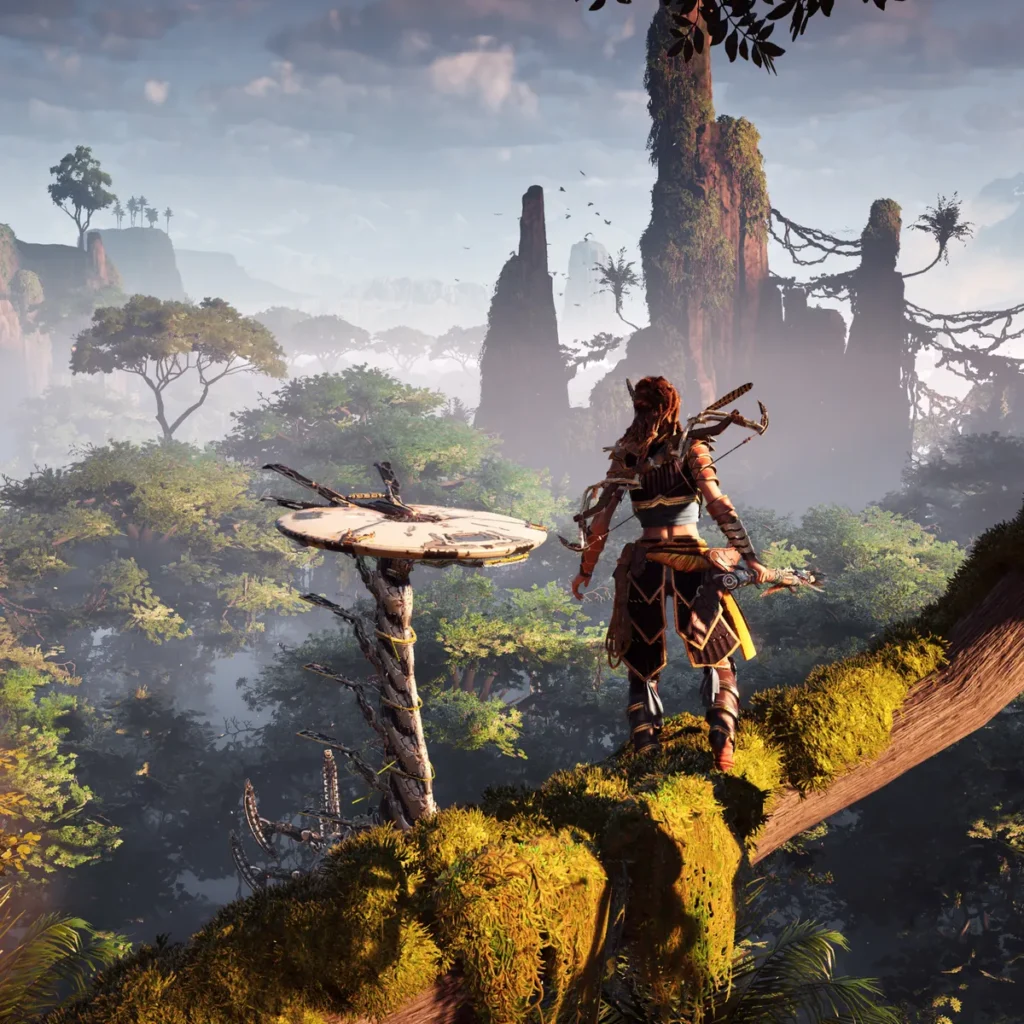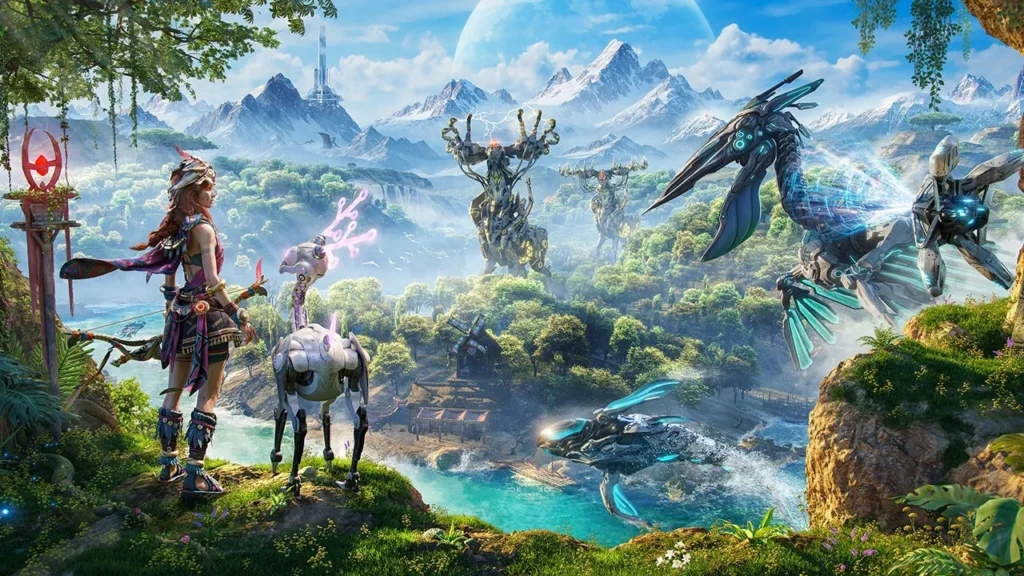You’d be forgiven for not remembering, but there is a Sony-Tencent lawsuit going on. What started a few years ago over a copyright spat on games from both companies has now evolved into a full-blown…spat over games from both companies. Hey, it’s a legal article, we never promised you excitement, okay?
Anyway, there’s a new chapter on the entire situation: Tencent is pushing back. Strongly. According to a Game Post report, the Chinese behemoth is now accusing Sony of “impermissible monopoly on genre conventions” by protecting common tropes like post-apocalyptic settings, bow-slinging heroes, and mechanical beasts. For context: the Sony-Tencent lawsuit involves a game called Light of Motiram, that Tencent’s gaming branch Level Infinite is developing…and looks extremely like Sony’s Horizon Zero Dawn and its sequel, Horizon Forbidden West—both originally released on PlayStation 4.
Cutting through the legalese for easier understanding, Tencent says Sony is trying to claim ownership of common genre topics and other regular aspects of gaming, effectively “fencing” the industry. And because of that, the PlayStation-maker has no case and the entire lawsuit should be thrown out by the US District Court for the Northern District of California, which is the appointed handler of the whole thing.
“At bottom, Sony’s effort is not aimed at fighting off piracy, plagiarism, or any genuine threat to intellectual property. It is an improper attempt to fence off a well-trodden corner of popular culture and declare it Sony’s exclusive domain.”

Even more so, Tencent also pointed out how Sony’s Horizon franchise (Horizon Zero Dawn and its sequel, Horizon Forbidden West) being promoted as “unique” and “exclusive” by Sony directly contradicts the game’s own staff, since a statement from Horizon: Zero Dawn art director Jan-Bart Van Beek, from a few years ago, says that Horizon‘s whole thing—a red-haired woman in an apocalyptic world where rogue killing machines run rampant—is inspired by another, previously released title, 2010’s Enslaved: Odyssey to the West.
The point Tencent is trying to make is: in pointing out the lack of “uniqueness” from Horizon Zero Dawn and its sequel, Sony’s claims hold no water in regards to Tencent’s Light of Motiram, a game the Chinese holding plans to release in 2027, through its Level Infinite gaming branch.
Tencent’s project is eerily familiar-looking, very closely reminiscent of Sony’s Horizon series on pretty much any aspect you look at: lead character’s aesthetics, world design, gameplay mechanics, so on and so forth—this is what started the whole thing, by the way.
But there’s a lot more than this “game copies game” scenario…
The Sony-Tencent lawsuit: how did it all started
After Horizon Zero Dawn and Horizon Forbidden West releases—2017 and 2022, respectively—and their major commercial success, Sony was riding a very profitable wave when, in 2024’s Game Developers Conference (GDC), Tencent approached the “House of PlayStation” with a pitch: a collaboration between the two companies on a new IP called Light of Motiram, which was…very much a Horizon look-alike.
This is the time where we stop your reading to clarify: this is not a “Pokémon versus Palworld” thing. In Nintendo’s case, Pokémon and Palworld have similar premises, but many of the games’ mechanics differ from each other (Palworld has guns, for instance). This time, both the Horizon franchise and Light of Motiram are incredibly close-looking, with few cosmetic differences.
That was Sony’s perception as well, since they refused Tencent’s proposal—twice, in fact, according to court documents—on terms that legal speech will summarize to “been there, done that”. Things were pretty normal until later that year, when Tencent unveiled the now Sony-less Light of Motiram as an open-world action-adventure starring a red-haired female lead battling robotic animals with bows and melee weapons in a lush, ruined landscape.
By now, the usual shenanigans take place: trailers get dropped, and because the internet is the internet, comparisons between the two projects soon explode, with social media getting filled with side-by-side screenshots showing eerie similarities in art style, character design, and gameplay mechanics.
To Sony’s justice, the Japanese publisher did threaten ask/warn Tencent of the problematic perception being drawn, and how the Chinese game was too close to the already established Horizon franchise for it all to be simply ignored. This went on until July 2025, when Sony had enough and slapped Tencent with a lawsuit in California federal court, accusing them of copyright and trademark infringement.


The complaint calls Light of Motiram a “slavish clone” that could trick fans into thinking it’s an official Horizon tie-in. Sony points to that 2024 GDC meeting as proof Tencent knew the IP inside out, speculating that the studio behind Motiram might be the same one pitched for the collaboration. Seeking damages of an unspecified amount, a jury trial and an injunction to stop Light of Motiram’s release, Sony went for Tencent’s neck with a very sharp knife, dubbing the Chinese project’s release “imminent” even though it’s not meant to come out until 2027.
On the receiving end of the motion, Tencent did its best to scrub pretty much all material assets promoting its game: Steam page, promos, artwork, trailers and nearly everything that was already out, were all removed from the online space, which in turn gave room for more speculation: by removing everything, was Tencent admitting guilt?
Probably not, since on September 18th, also known as “today”, the Chinese company fired back, claiming all the defense arguments we told you earlier in this article. Tencent’s pushing for dismissal, arguing the suit targets unreleased work and overreaches into public domain ideas.
Now, there is still no word on the court taking Tencent’s claim or dismissing it, but If they agree, this could end quickly; otherwise, we’re in for a dragged-out battle.


